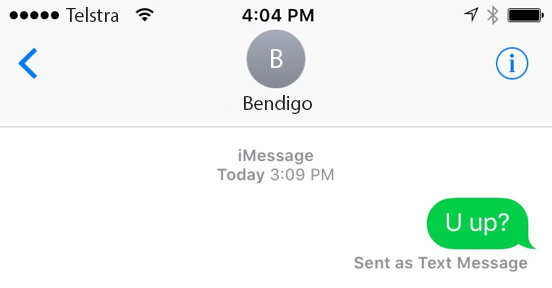Netflix looks to Asia, Suncorp wants to unbank, Link gets lowballed: What we learned this week
US equity markets have the worst half year since the 70's and Tyro CEO calls it quits.
Not since Nixon
US equity markets closed out the financial year in a rout of historic proportions. Down 21%, the S&P 500 had its worst first half since Nixon. Nowhere was safe, with all sectors down bar energy. Records piled up elsewhere too: the worst quarter for the S&P/ASX 200 since March 2020, Bitcoin (and copper prices) worst three months since 2011. Optimists note the S&P 500 rallied sharply through the second half of 1970. History doesn’t repeat but some will hope it rhymes.
Australian honeybees reminded to ‘check in’ at hives
Australian honeybees are in lockdown after a parasite attack. Exclusion zones have been set up around Newcastle to contain an outbreak of the Varroa parasite, which has devastated honeybee populations globally. Honeybees are vital for multiple crops such as almonds and their absence will threaten harvests.
Tyro chief executive resigns
Fintech chief executive Robert Cooke handed in his six months’ notice on Wednesday. Cooke will join Star Entertainment Group as chief executive to replace the outgoing Matt Bekier. Cook is strapping on the parachute as Tyro Payments plummets to the bottom of the ASX league tables, down 75% since January. He will take the reins as Star fronts a sagging share price (off 25% this year) and angry regulators. Investors will be hoping he can cook up a solution.
Netflix empties pockets for Asia
Netflix is looking to Asia for help after a brutal 2022. Senior corporate body Tony Zameczkowski said the streaming giant will continue to grow its investment in Asia including financing locally produced films. Netflix's commitment to Asia comes as the company moves to slash costs earlier this year. It followed through last week by laying off roughly 300 employees (roughly 4% of staff) globally. A further 150 were cut in May. The streaming giant’s share price has collapsed over 70% this year as it battles slowing revenue and falling subscribers.
Suncorp in talks with Bendigo and Adelaide bank
Rumours are circulating about a potential merger between Suncorp’s banking division, and Bendigo and Adelaide bank. In an announcement on Monday, Suncorp responded to the media speculation saying the group ‘from time to time renews its strategic alternatives in relation to all of its business services and is currently doing so in respect of its banking operations.’ Morningstar analysts are ambivalent about the value of spinning of Suncorp’s banking arm. It’s also not the first deal mooted between these parties. Suncorp reportedly offered to buy Bendigo at a 21% premium to market price in 2018, however that the offer was rejected. How the tables turn.
Dye and Durham drive a hard bargain for Link
Link’s suitor is getting cold feet. In a letter on Monday, the Canadian cloud based software company cut its offer from $5.50 to $4.30, a hefty 22% discount. Link’s board is probably remembering the offers from KKR, the Carlyle Group and US software provider SS&C Technologies it rejected last year—all above $5. Shareholders probably are. Dye and Durham also plans to provide an “undertaking” to the Australian Competition & Consumer Commission (ACCC) to get the deal across the line after the competition watchdog raised concerns in June. Shares closed higher after the news. Dye and Durham have committed to not making any more amendments or altercations to the deal and expects the approval of the ACCC. Let’s see.
Another ASX sell off: Market recap
A broader sell-off in mining and energy stocks late in the session has pushed the Australian share market into the red, as investors remain jittery over prospects of a slowdown in global growth.
The benchmark S&P/ASX200 index dropped 28.2 points, or 0.43%, to 6,539.9 on Friday. The index edged 0.6% lower for the week.
Investors earlier shrugged off an overnight decline on Wall Street and weaker US consumer spending that indicated price pressures were still strong. But demand-tracking commodities such as oil and copper remained under pressure, resulting in broader losses in the mining and energy sectors.
It comes after Australian shares posted losses of 10.2% over the fiscal year ended June 30.
"Soaring inflation and aggressive policies from global central banks to wind back the stimulus seen through the COVID period have contributed to the weakness in the Australian sharemarket over the past year," CommSec Chief Equities Economist Craig James said.
He expects the local market to claw back the losses over the next 12 to 18 months on the back of a strong domestic economy and an easing in inflationary pressures, but says investors need to remain alert amid the volatility.
On Friday, energy stocks were the worst hit after oil prices sank further after a 3% decline overnight.
Sector leaders Woodside and Santos slid 4.4% and 2.8% respectively, while Beach Energy and refiner Ampol lost more than 1% each.
Mining stocks weighed down the market further as iron ore prices continued to slip amid top steel producer China's demand constraints. Gold stocks were mixed, with top miner Newcrest sliding 3% but Evolution Mining and Northern Star edging higher.
Financial stocks gave up some of their early gains amid the uncertainty over the extent of the rate hike the Reserve Bank will announce after its board meeting next week. Only two of the big four banks - CBA and NAB - ended slightly higher.
Blue Chip Movers
- Magellan Financial Group ↓ 6%.
- Telstra ↓ 2.3%.
- AGL ↑ 1%.
- Supermarkets: Woolworths ↓ 1% / Coles ↓ 0.5%.
- Resources: Rio Tinto ↓ 3.3% / BHP ↓ 2.8% / Fortescue metals ↓ 4.9%.
- Big banks: NAB ↓ 1.5% / Westpac ↓ 2.5% / CBA ↓ 3.2% / ANZ ↓ 2.5%.
What we’re watching next week
- Tuesday: Reserve Bank interest rate decision. Markets expect a 0.5% hike, watch for any surprises.
- Thursday: Minutes from June Federal Reserve meeting. Watch for any language that could indicate Fed moves in the future.
- Friday: US unemployment rate for June. Watch for signs of the economy slowing.


